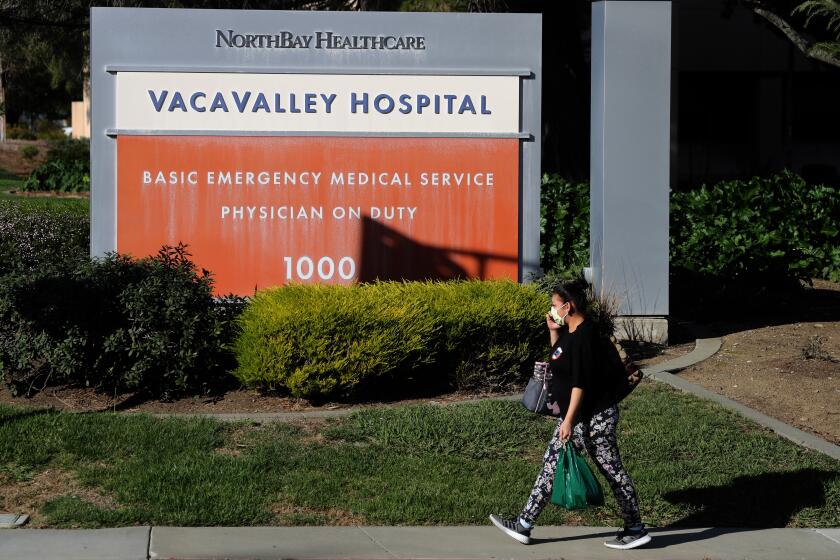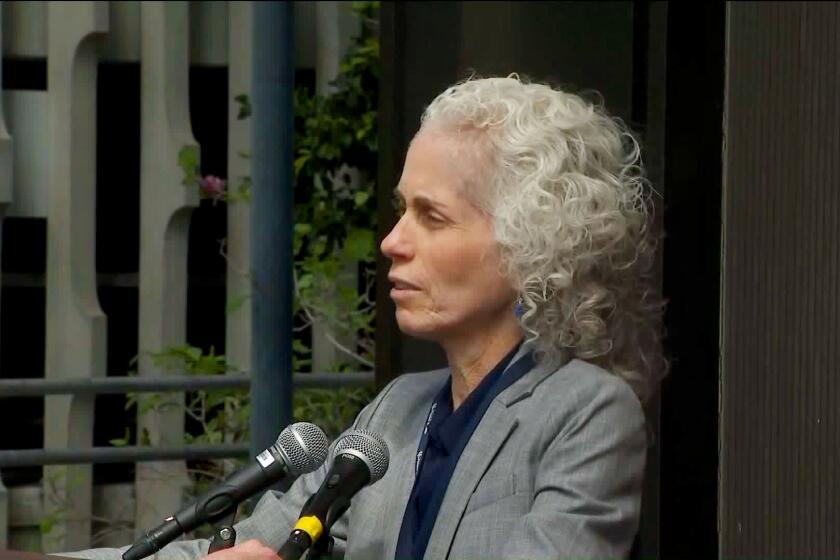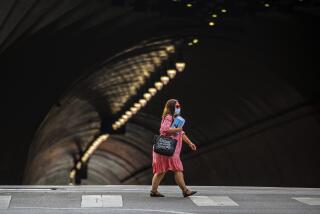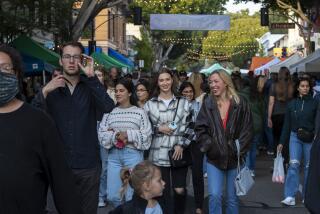California coronavirus warnings get more dire: Cancel events, don’t shake hands, stay 6 feet away
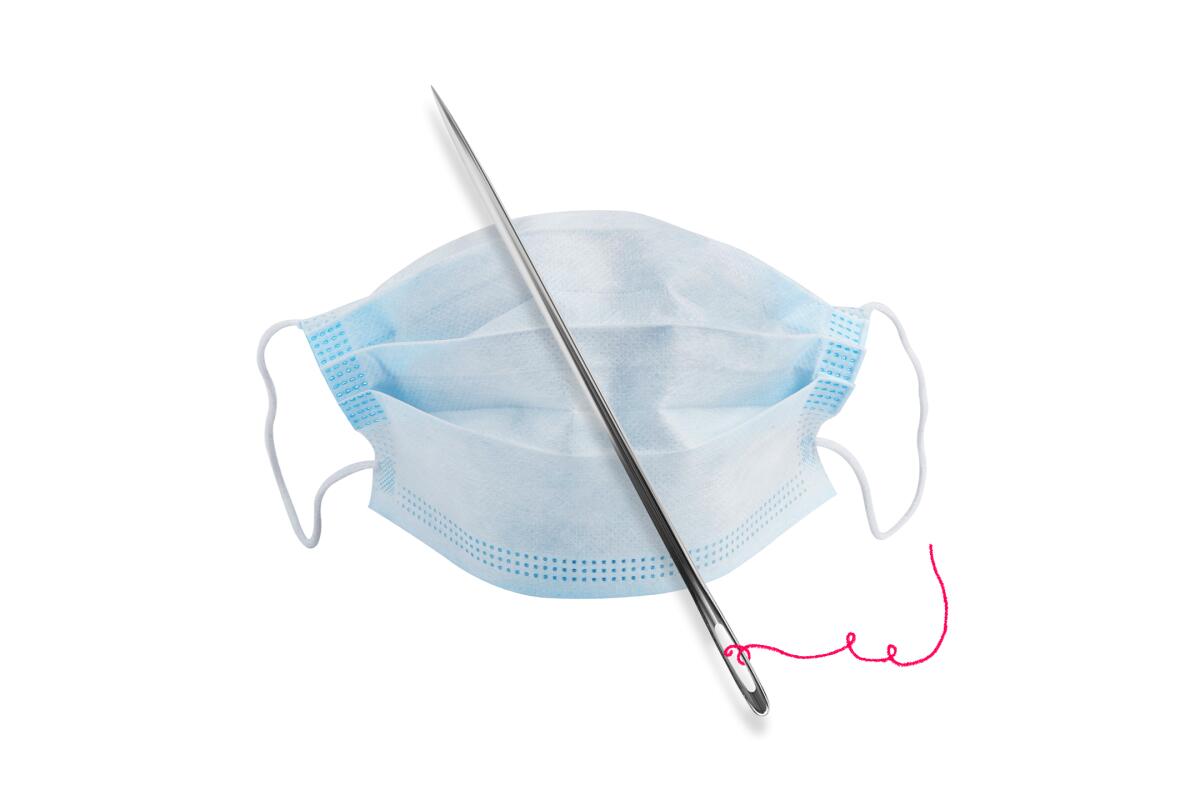
With the number of coronavirus cases in California topping 60, public health officials are issuing more serious warnings about how to change residents’ behavior in the face of the spreading illness.
In Santa Clara County, where there are now 20 cases, officials urged residents to postpone or cancel large gatherings and events and minimize work in big groups.
Officials are most concerned with those who have the highest risk of contracting the virus: people over 50 with underlying health problems.
Why the growing concern?
Santa Clara County announced Thursday that the number of cases there had grown from 14 to 20. Of those cases, four are related to travel, nine had contacts with other confirmed COVID-19 patients and seven were believed to have caught the illness in the community.
That prompted new guidance aimed at reducing the spread of the virus.
“Our cases to date indicate to us that the risk of exposure to the virus in our community is increasing,” Dr. Sara Cody, health officer for Santa Clara County and director of the Santa Clara County Public Health Department, said.
County health officials issued more stringent recommendations meant to slow the spread of the virus, calling on residents to postpone large gatherings and events. Employers should take steps to minimize large group meetings, consider allowing employees to telecommute and stagger work start and end times.
Health officials aren’t recommending that schools be shuttered but said they’ll consider such closures on a case-by-case basis if a school employee or student is confirmed to have the coronavirus.
San Mateo County’s health officer, Dr. Scott Morrow, said in a statement Thursday that COVID-19 “has likely been spreading for weeks, perhaps months.”
“We now all need to take assertive actions to inhibit the spread of this new virus,” Morrow said.
Among other steps, Morrow recommends that people stop shaking hands, use a barrier such as a paper towel or tissue to touch door handles, elevator buttons and other commonly touched surfaces, and “under all circumstances, stop touching your face, eyes, nose or mouth with your unwashed hands.”
Echoing Santa Clara County officials, he said residents should cancel or postpone nonessential gatherings.
In the future, other steps may be needed, Morrow said, including school closures that “may be extensive and extended,” rationing of critical supplies and social distancing — that is, staying at least six feet away from other people.
What is behind the warnings?
Officials are concerned about the rapid spread of the disease through the community. The first round of cases in California involved people who had traveled from the epicenter of the outbreak in Wuhan, China.
But in Santa Clara, San Francisco, Solano and other counties, there are now cases with no links to foreign travel.
Some healthy people might have the coronavirus and not know it. But they could give it to someone with health issues who could become ill or even die.
California has recorded at least 157 cases of COVID-19, including four deaths, in more than a dozen counties.
What are tips for stopping the spread?
Here are some tips provided by San Mateo and Santa Clara County health officials:
• All nonessential gatherings should be canceled, postponed or done remotely. At this time there is no standard definition of “nonessential” or “gathering” to guide decision-making. Officials recommend using your best judgment.
• Stop shaking hands.
• Increase the amount of remote working to the extent possible, especially for those who appear at higher risk of developing the disease, those over the age of 60 and those with underlying health conditions.
• Under all circumstances, stop touching your face, eyes, nose or mouth with unwashed hands.
• School closings present a particularly vexing social-distancing dilemma but may be necessary to protect public health. Once school closings occur, they may be extensive and extended.
• Social distancing — staying at least six feet away from all other people — should be attempted where possible.
• Rationing of critical supplies may need to occur.
• Communities may need volunteers. Think now about the skills you have and how you can help. Heed the call should volunteers be requested.
• Other public health interventions that have been used to some effect in other countries include commandeering of personal property, conscription, curfew and cordons. It is unlikely that these interventions would be used in the U.S.
Yolo County announced its first case of coronavirus, becoming the 13th county in California with a patient who has tested positive for COVID-19.
Employers should:
- Suspend nonessential employee travel.
- Minimize the number of employees working within arm’s length of one another, including minimizing or canceling large in-person meetings and conferences.
- Urge employees to stay home when they are sick and maximize flexibility in sick leave benefits.
- Not require a doctor’s note for employees who are sick as healthcare offices may be very busy and unable to provide that documentation right away.
- Consider use of telecommuting options for appropriate employees.
- Consider staggering start and end times to reduce large numbers of people coming to work at the same time.
Events
Santa Clara County is recommending postponing or canceling mass gatherings and large community events where large numbers of people would be within arm’s length of one another.
If such gatherings can’t be avoided, consider the following:
- Urge anyone who is sick to not attend.
- Encourage those who are at higher risk for serious illness to not attend.
- Try to find ways to give people more physical space so they aren’t in close contact as much as possible.
- Encourage attendees to follow increased hygiene, such as:
- Washing hands often with soap and water for at least 20 seconds
- If soap and water are not available, alcohol-based hand sanitizer can be used
- Avoid close contact with other people
- Avoid touching your eyes, nose and mouth
- Covering coughs and sneezes with a tissue - if available - or into their elbow
- Washing hands often with soap and water for at least 20 seconds
- Clean surfaces with standard cleaners.
More to Read
Sign up for Essential California
The most important California stories and recommendations in your inbox every morning.
You may occasionally receive promotional content from the Los Angeles Times.

